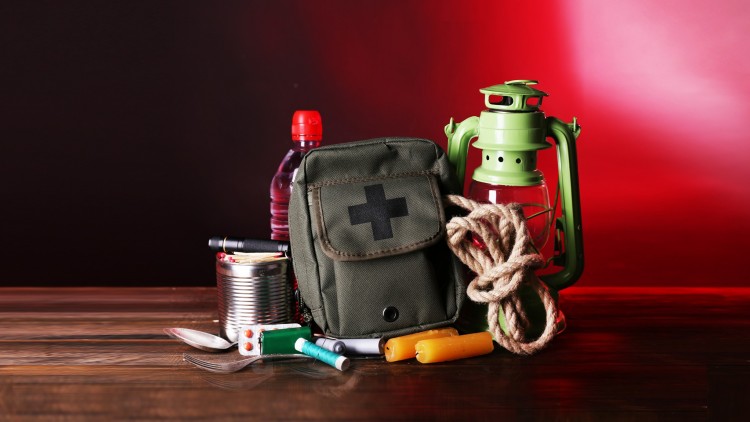If you are just getting into living a prepared lifestyle it can be difficult to know where to start. Developing goals or milestones in your preparedness can help you stay on track in a practical way and avoid a one-dimensional or incomplete strategy that can drain your budget long before it offers any real benefits to you. Here is a list of goals that one should attempt to complete before continuing in any one aspect of their preparation.
7 Days of Stored Water
This means that you have 7 days of water stored for everyone in your home including pets. This can be done easily and cheaply by simply filling used bottles that have been cleaned and storing them. After taking care of other aspects of your preparation you can buy more, and better, water storage containers and work your way up to 30 days of water and getting water filtration devices.
30 Days of Stored Food
Once again, this will mean for everyone in your home including your pets. Make sure you are storing as balanced a diet as you can, storing carbohydrates (rice), protein (canned meat, beans, jerky), fat (oil, nuts, lard), and fiber sources (dried fruit, seaweed, green powder).
Clothing
In cases where you may be without heat or forced outside, everyone will need waterproof layers and good footwear.
Gear
There is no end to the gear you get, but a good place to start is a solid knife, head lamps with plenty of batteries, fire starting gear, packs, tarps, and first aid supplies. After getting these essentials you can slowly add to your gear supply.
Firearms
For those that can obtain firearms, they are valuable tool for defense and for hunting. Make sure to make your first firearm one that is well rounded for all your needs. For this reason, I would not recommend getting a pistol as your first firearm. If you have a firearm already, make sure you get a large supply of ammunition before purchasing second firearm, as neither of them will do you any good if you can’t fire them.
Skills
One of the most neglected aspects of preparation is developing the skill sets necessary to survive. If you are new to this, start small. Learn how to build a shelter from natural material and tarps, learn how to start fires properly, learn the available wild resources in your area, and develop a plan of action for likely disaster scenarios for your location.
There may be no end to prepping, but that doesn’t mean there is no place to start, or that you need to invest thousands of dollars in gear and countless hours into training. Start small, but focus on a well-rounded approach, don’t only get food, or only gear, or only guns, you will need all of these are more. Everyone, even the most prepared, started somewhere, you can too.
If you liked this, you might also enjoy…
Holistic Medicine Basics…
Ever Considered Taking Yoga? Read this…
The Ultimate Woodworking Course..


